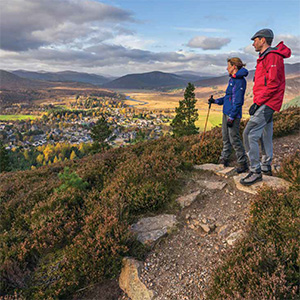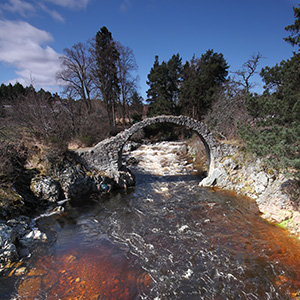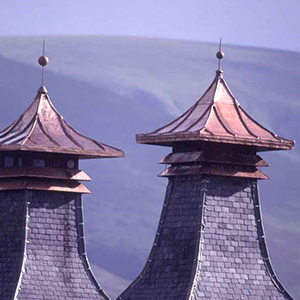Priority 3: Moorland Management
Moorland is used for both field sports and farming and its management is key to delivering several public interest priorities including peatland restoration, flood risk management, species conservation and landscape enhancement
https://www.youtube.com/watch?v=GrqWf8CPL-Q
The open moorlands of the Cairngorms are an integral part of the landscape character of the National Park and a valuable habitat. Moorland covers approximately 40% of the Park with a further 30% classified as the higher montane zone. The range of demands this generates and the need to integrate land use change such as woodland expansion creates a challenge to reconcile different objectives.
Good moorland management makes a significant contribution to delivering the conservation priorities set out in the Partnership Plan. In some places however, the intensity of management measures to maintain or increase grouse populations is out of balance with delivering wider public interest priorities.
During the course of this Plan period we seek to establish, deliver and promote a shared understanding of what good moorland management looks like in the Cairngorms National Park.
Heather Moorland Areas Within The Cairngorms National Park
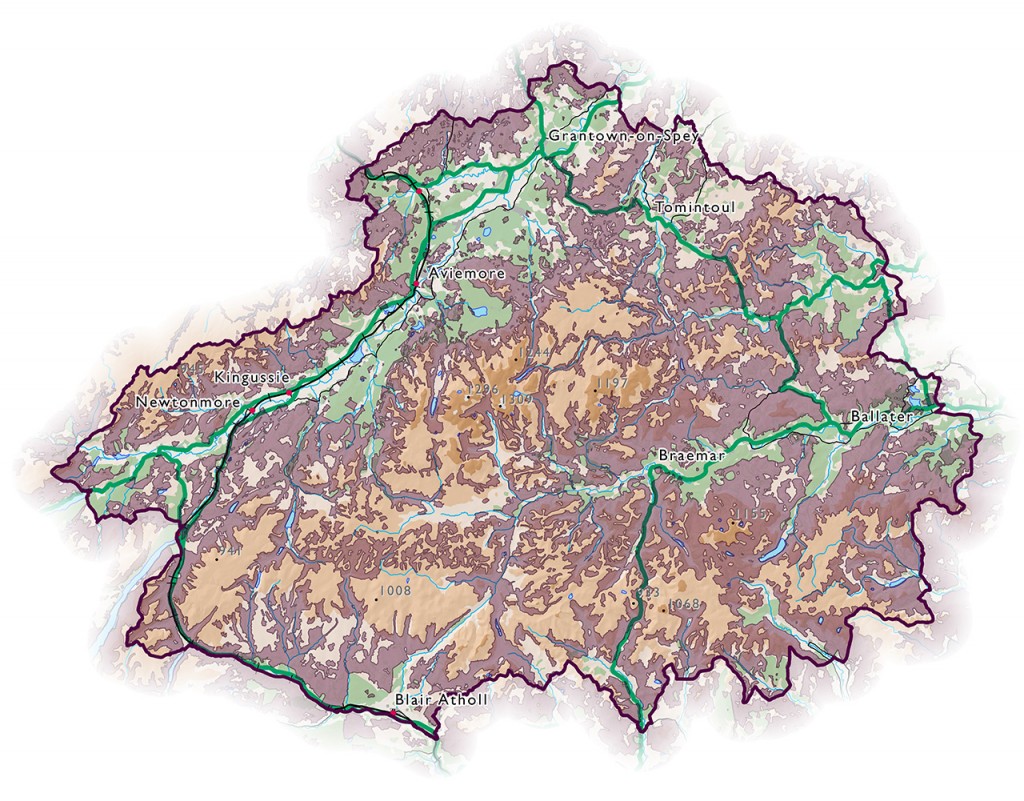
![]() Heather Moorland Areas Within The Cairngorms National Park
Heather Moorland Areas Within The Cairngorms National Park
Reproduced by permission of Ordnance Survey on behalf of HMSO. © Crown copyright and database right 2017. All rights reserved. Ordnance Survey Licence number 100040965 Cairngorms National Park Authority. © JHI, SNH.
Agenda For Action
The focus of action for this Plan period is:
- To deliver and recognise good practice in moorland management;
- To eliminate raptor persecution and increase raptor populations;
- To contribute to woodland, peatland and designated site targets.
Partners will support delivery and recognition of good practice in moorland management, which will include:
- Improving a shared definition and understanding of healthy moorland ecosystems;
- Delivering more habitat and species diversity within and alongside moorlands;
- Implementing guidance and trialling new approaches emerging from national initiatives, for example: mapping what
implementation of the revised muirburn code means, using the Principles of Moorland Management and using the
lessons of the Understanding Predation project to share knowledge and data; - Minimising landscape impacts through a presumption against new constructed tracks in open moorland. Partners will work to improve raptor populations in the National Park through:
- Eliminating the illegal killing of raptors through increased wildlife crime enforcement capacity and recognition for good management;
- Developing a multi partner golden eagle project which includes further analysis on occupancy following the 2016 national
survey, informs management and develops the wildlife tourism opportunities associated with golden eagles.
Partners will support effective integration of objectives, including:
- Delivering peatland restoration and securing peatland for the long-term;
- Integrating woodland expansion and montane woodland within and around moorlands;
- Supporting a more collaborative approach to integrating objectives for conservation, sport and woodland through the East Cairngorms Moorland Partnership and with other estates;
- Establishing an Upland Advisory Forum to address the integration of land use objectives and bring together all relevant interests to shape good practice in the Cairngorms National Park.
Areas With Peat Depth In Excess Of One Metre
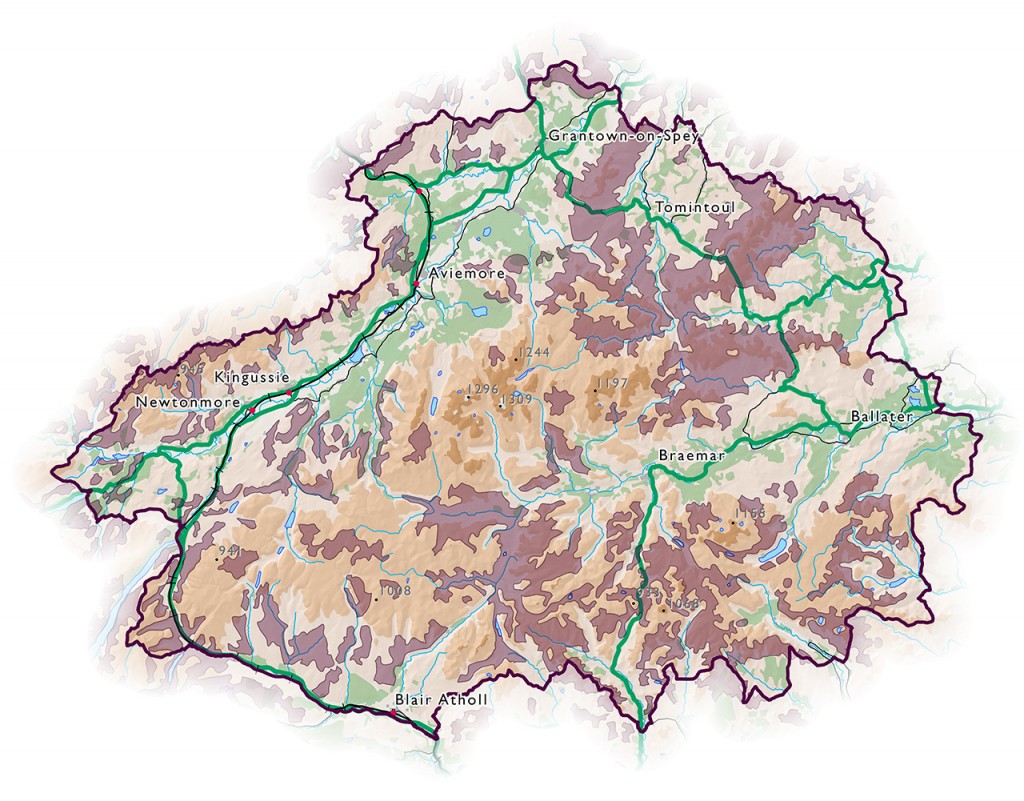
![]() Areas With Peat Depth In Excess Of One Metre
Areas With Peat Depth In Excess Of One Metre
Reproduced by permission of Ordnance Survey on behalf of HMSO. © Crown copyright and database right 2017. All rights reserved. Ordnance Survey Licence number 100040965 Cairngorms National Park Authority. © JHI.
